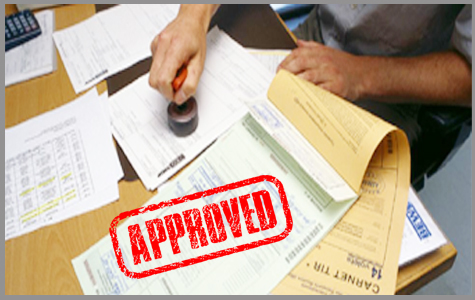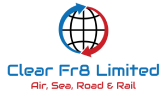Importing Dairy produce to the UK: A Comprehensive Guide
The UK's exit from the European Union has ushered in significant changes in import regulations, especially concerning food products such as dairy. With the introduction of the Border Target Operating Model (BTOM), importers must navigate a complex landscape to ensure compliance.
This comprehensive guide will help you understand the new BTOM rules and how to successfully import dairy products into the UK. The BTOM is designed to strengthen the UK's border controls, ensuring the safety and quality of imported food products. This model emphasizes thorough documentation, stringent health certifications, and regular inspections to mitigate risks associated with importing animal products, including dairy.
Overview of BTOM Regulations for Dairy Imports
1. Pre-Notification
Under the BTOM, importers must pre-notify the UK authorities of any dairy imports. This involves submitting detailed information about the shipment at least 24 hours before it arrives at the UK border. The information required includes:
- Consignor and consignee details
- Description of goods
- Country of origin
- Quantity and weight of products
- Expected date of arrival
Pre-notification can be done through the Import of Products, Animals, Food, and Feed System (IPAFFS), an online portal that streamlines the process for importers.
2. Health Certificates
Health certificates are mandatory for importing dairy products into the UK. These certificates must be issued by the competent authority in the exporting country and confirm that the products meet UK health and safety standards. The key elements of a health certificate include:
- Details of the exporting company
- Health status of the dairy products
- Veterinary approval
- Compliance with UK regulations
Ensuring that all health certificates are accurate and complete is crucial to avoid delays and potential rejections at the border.
3. Import Licenses
Certain dairy products may require an import license before they can be brought into the UK. The need for a license depends on the type of dairy product and its country of origin. Importers should verify whether their products require a license and apply well in advance to ensure timely approval.
4. Inspection and Clearance
All dairy imports are subject to inspection upon arrival in the UK. Inspections are conducted at Border Control Posts (BCPs) where officials check the products for compliance with UK standards. The inspection process includes:
- Documentary check: Verification of all submitted documents, including health certificates and licenses.
- Identity check: Ensuring that the products match the details provided in the documentation.
- Physical check: Examination of the dairy products to assess their quality and safety.
Successful inspection results in the clearance of goods, allowing them to enter the UK market. Any discrepancies or issues found during inspection can lead to delays or refusal of entry.
5. Traceability
The BTOM emphasizes the importance of traceability in the food supply chain. Importers must maintain comprehensive records of their dairy imports, including:
- Source and origin of products
- Batch numbers
- Dates of import and distribution
- Details of buyers and distributors
These records must be kept for a minimum period, as stipulated by UK regulations, to facilitate traceability in case of any food safety incidents.
Challenges and Considerations for Importers
Compliance Costs
Adhering to the BTOM regulations involves additional costs for importers, including fees for health certificates, inspection charges, and potential storage costs at BCPs. It's essential for businesses to factor these costs into their pricing strategies to maintain profitability.
Risk of Delays
The stringent inspection and documentation requirements under the BTOM can lead to delays in the import process. Importers should plan their shipments meticulously and ensure all paperwork is in order to minimize the risk of delays.
Adapting to New Regulations
The BTOM represents a significant shift from previous EU regulations. Importers must stay informed about the latest updates and adapt their operations accordingly. This may involve additional training for staff, updating internal processes, and investing in technology to streamline compliance.
Best Practices for Smooth Importation
Stay Informed
Regularly check for updates on BTOM regulations and guidance from the UK government. Joining industry associations and participating in relevant forums can provide valuable insights and keep you abreast of any changes.
Work with Reliable Partners
Collaborate with experienced customs brokers and freight forwarders who are well-versed in BTOM requirements. They can provide expert advice and assistance, ensuring that your shipments comply with all regulations.
Invest in Technology
Leveraging technology can streamline the importation process. Use electronic documentation systems, track shipments in real-time, and employ tools that help manage compliance requirements efficiently.
Train Your Team
Ensure that your staff is adequately trained in BTOM regulations and procedures. Regular training sessions can help your team stay updated on compliance requirements and best practices.
Conclusion
Navigating the new Border Target Operating Model (BTOM) rules for importing dairy products into the UK requires thorough understanding and meticulous planning. By adhering to pre-notification requirements, securing accurate health certificates, obtaining necessary import licenses, and ensuring rigorous inspections, importers can successfully bring dairy products into the UK market. Despite the challenges, staying informed, working with reliable partners, investing in technology, and training your team can facilitate a smooth importation process, ensuring compliance and minimizing delays. As the regulatory landscape evolves, staying proactive and adaptable will be key to maintaining a seamless supply chain and delivering high-quality dairy products to UK consumers.
DOCUMENT REQUIREMENTS
- Certificate of Origin
- Bill of Lading
- Packing List
- Commercial Invoice
- Customs Clearance

